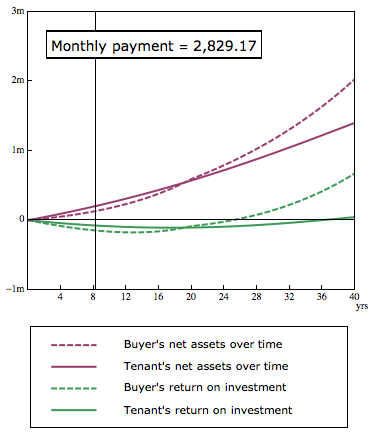I was sure this question must have been asked and answered here long ago, but I've looked and can't find quite this question, in its most direct/blunt form, which is:
If you can do it, when is it better to buy a house in cash vs. getting a mortgage?
(This is asked for the U.S., in the post "2008+" recession era.)
Or, less extremely, is it best to get as small a mortgage as you can, and put as much cash into the buy as you can, or is it better to limit one's cash payment and take on a bigger mortgage?
Now, obviously, if you somehow have a guaranteed interest that is huge, such as the 17% CD rates of the 1980s, and you have a 5% mortgage, the math works out that (all else being equal) you should take as big a mortgage as you can. But that is certainly not the case today, with CDs at abysmal payouts.
FWIW, I have been of the "save hard and someday buy a house cash" school of thought; I liked the idea of side-stepping the banks, paperwork, not worrying about my credit rating for it/approval, of not taking on a debt, knowing the buy was already a done deal, and, importantly and as regards personal finance, not paying possibly $100k+ in interest over 30 years.
But I know that's not the entirety of the considerations, and some might be subtle or quite unknown to me. And so I'd like to be clearer on whether my strategy is the best one, given my (understandable) goals to save money and live securely and well. I think this is a crucial question in one's financial life, and so I'm hoping we can get some comprehensive, up to date, sourced, and quantified answer(s) here. Thanks.

